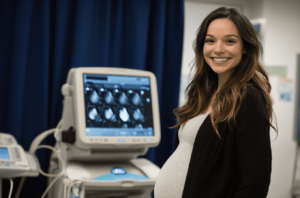Pregnancy is an extraordinary journey marked by a series of unique experiences and transformations as you prepare to welcome new life into the world. Here are some common phenomena that you may encounter during this remarkable time:
1. The Nesting Instinct
Expectant mothers often experience the nesting instinct, an innate urge to organize and prepare their living space for the baby’s arrival. As the due date approaches, you might find yourself immersed in deep cleaning and home decorating activities. While this can be beneficial for getting things in order, it’s important to avoid overexertion.
2. Challenges with Concentration
During the initial trimester, fatigue and morning sickness can contribute to mental fog and difficulty concentrating. Hormonal changes and the anticipation of motherhood can also play a role in diminished focus. Keeping lists and prioritizing tasks can help you stay organized during this time.
3. Mood Swings
Similar to premenstrual syndrome (PMS), pregnancy can bring about mood swings due to hormonal fluctuations. If you experience severe mood swings or persistent feelings of sadness, it’s essential to discuss this with your healthcare provider, as depression during pregnancy is a valid concern.
4. Changes in Bra Size
One of the earliest signs of pregnancy is breast enlargement. This occurs due to increased levels of estrogen and progesterone. Your ribcage may also expand to accommodate changes in lung capacity. As a result, you may need to update your bra size multiple times throughout your pregnancy.
5. Skin Transformations
Pregnancy hormones can lead to increased blood flow and oil gland secretion, resulting in skin changes such as a pregnancy glow or skin darkening (melasma). Some women may develop a dark line on their abdomen (linea nigra) or experience acne due to heightened oil production. While these changes are common, wearing sunscreen and using moisturizers can help manage them.
6. Hair and Nail Alterations
Hormonal shifts can impact hair texture and growth, causing faster hair growth and reduced hair loss during pregnancy. Some women may notice hair growth in unusual places or changes in hair color. Nails may also grow faster and become stronger, although this can vary from person to person.
7. Shoe Size Adjustment
Increased fluid retention and joint relaxation during pregnancy often lead to swollen feet and a need for larger shoes. Loose-fitting, slip-on footwear can provide comfort and accommodate foot changes during this time.
8. Joint Mobility
The hormone relaxin, produced during pregnancy, loosens ligaments in the body to prepare for childbirth. This increased flexibility can make you more susceptible to joint injuries. It’s crucial to exercise caution during physical activities to avoid overstretching or strain.
9. Varicose Veins, Hemorrhoids, and Constipation
Pregnancy-related changes can cause varicose veins, hemorrhoids, and constipation. To prevent these issues, it’s recommended to avoid prolonged sitting or standing, wear supportive clothing, and maintain a fiber-rich diet with adequate hydration.
10. Labor Surprises
During labor, various bodily changes occur, such as the rupture of the amniotic sac (water breaking), which releases amniotic fluid. Other unexpected occurrences like nausea, vomiting, or bowel movements may also happen during labor.
Understanding these changes and being proactive in managing them can contribute to a smoother and more comfortable pregnancy journey. Always consult with your healthcare provider if you have concerns or experience unusual symptoms during pregnancy.



